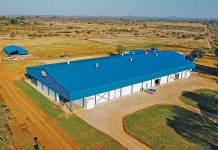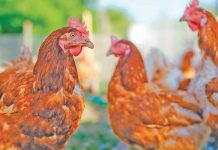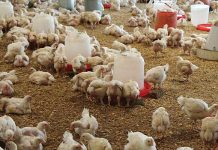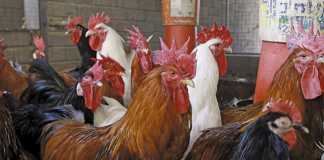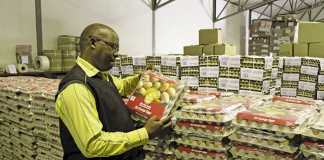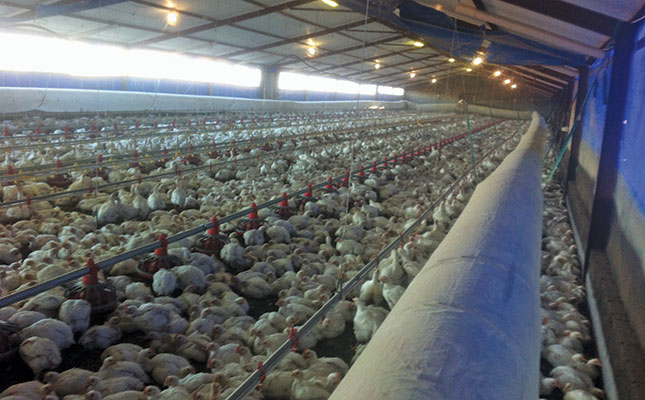
Despite a challenging trading environment, large-scale South African poultry meat production remains internationally competitive. This competitive advantage can be ascribed to the industry’s significant investment in automation and technology – an attempt to reduce costs to ensure the industry’s survival.
According to Dr Charlotte Nkuna, head of transformation at the SA Poultry Association (SAPA), only Brazil’s broiler production sector is regarded as more competitive than that of South Africa. Unfortunately, this has come at a cost: the local industry’s quest for global competitiveness has made the gap between large- scale established producers and new entrants to the industry wider than ever.
“Billions of rands have been invested in establishing black farmers in the poultry industry without any significant returns. Because small-scale producers have to compete with large companies on the open market, barriers to entry are very high. Moreover, small-scale producers have to compete with broiler imports from the EU, US and Brazil,” Nkuna says.
According to her, a small-scale broiler producer requires a flock of at least 5 000 birds to ensure financial sustainability. One of the main challenges faced by black farmers when entering the poultry industry is access to markets, says Nkuna. “Most of the farmers rely on the live bird market. This is sporadic and limits their expansion due to difficulties associated with selling large quantities of live birds on the market.”
By contrast, some small-scale producers, like Jake Mokwena (see box), supply poultry processing companies as contract growers. In this case, a single additional contract can allow for considerable expansion.
Nkuna points out that there are two broad markets that black entrants to the industry can target: government institutions and retailers.
“The designation of product [in the public sector procurement system] will provide [producers with] access to government institutions,” she says.
SAPA’s engagements with the Department of Trade and Industry (DTI) will continue to ensure that such a process is finalised.
“Retailers, on the other hand, have shown interest in procuring products from black producers. However, the issue of getting the right quantity of the right quality at the right time has always been a challenge.”
Changing perceptions
Nkuna stresses that the portrayal of poultry farming as an easy way to make money has not helped to promote the transformation process. “Most of the beneficiaries enter the industry with very little knowledge and experience. If this trend continues, meaningful transformation will never be achieved.”
According to SAPA, it is of paramount importance that the industry develops new models to support South Africa’s transformation agenda.
Nkuna points out that until now, government has been at the forefront of integrating developing farmers into the poultry industry. However, there has been little coordination between the various role players, and without the right support, most of the initiatives have collapsed after very short trading periods.
“The models used to initiate the projects, despite good intentions, weren’t well thought through, hence the slow progress. Finding the right models to set up the projects has been very challenging, and even in instances where transformation has been attempted through equity transfer, success has been very limited,” she says.
Government and private transformation agenda
Two years ago, because of the challenging business environment faced by the local poultry industry, sector role players and the DTI committed to developing initiatives that would assist in keeping the industry profitable. The result was the Broiler Industry Development Plan, which focused on three priorities: trade, industry transformation and job security, and sanitary and phytosanitary (SPS) measures.
Several initiatives have been launched during the past two years, and although advances have been made with trade matters, progress in transformation and SPS has been very slow.
SAPA has therefore set an objective to achieve broader participation of previously disadvantaged individuals across the value chain. In fact, according to Nkuna, SAPA wants to champion the transformation agenda.
“Transformation is an industry responsibility. The role of government is to create an enabling environment. This should be done through appropriate legislation and instituting protection measures – both tariff and non-tariff measures.
Fair trade vital
Because SAPA believes the local industry is internationally competitive, it is not opposed to imports as long as the terms of trade is fair. With the support of government, and without the pressure of unfair competition from abroad, the industry could transform and play its role in mentoring new farmers, providing technical and any other support necessary, Nkuna says.
As part of the new strategy, the Developing Poultry Farmer’s Organisation (DPFO) was dissolved and its members integrated into SAPA’s broiler and egg organisations. Mokwena was the chairperson of the DPFO from 2008 to 2014. SAPA has formed a committee to drive the new agenda.
According to Nkuna, the industry has set transformation goals for the entire value chain and not only for primary production of broilers and eggs. Two main points are being considered:
Transformation of the current commercial industry, which will require public and private buy-in and participation;
Bringing new role players on board in a sustainable way, which will require involvement from government and financial institutions. “My approach is not to chase numbers. I’d like to focus on depth and then replicate that over time. We’re looking at
long-term transformation and to roll out our initiatives step-by-step.
“Establishing clusters or co-ops for black farmers entering the poultry industry will be essential to provide economies of scale to succeed in a competitive environment.”
New abattoir in Ga-Rankuwa
As part of the Gauteng abattoir initiative, started two years ago by SAPA and the Gauteng Department of Agriculture and Rural Development (GDARD), SAPA will continue to push for the construction of an abattoir in the Ga-Rankuwa area.
“SAPA and GDARD will formalise engagements with identified farmers who will become suppliers to the abattoir. These farmers collectively produce up to 1,28 million broilers per cycle, which is approximately 175 000 broilers per week. Farmers in North West, within a reasonable distance from the abattoir, would also be able to use the facility.
“Ideally, [building] an abattoir to serve North West farmers will also be investigated and this process has already been initiated” says Nkuna.
According to her, most of South Africa’s large poultry producers already undertake empowerment initiatives in their areas, and SAPA aims to consolidate these to create a bigger impact. She points out that achieving transformation should not only focus on establishing new primary producers and handing over equity. The seven pillars of the BEE scorecard offer a number of transformation opportunities for skills and enterprise development, as well as preferential procurement with regard to poultry house maintenance and undertaking vaccination programmes.
“The poultry industry should identify empowerment opportunities, but will need to have the will and full engagement of new entrants to ensure their success. Moreover, these initiatives will never be successful if there isn’t close collaboration between government and the industry. Large producers will also need to conform and meet the requirements of the new DTI sector codes,” Nkuna says.
Mentorship programme
SAPA will also establish a farmer mentorship programme in which large producers would support a new farmer or group of
farmers in an area with biosecurity procedures, farm audits, technical support, and securing favourable prices for farming inputs.
“When it comes to an issue like transformation, history has taught us that speed is not always what wins the race, but almost always perfect execution does,” Nkuna says.
Phone Dr Charlotte Nkuna at the South African Poultry Association on 011 795 9920, email her at [email protected], or visit www.sapoultry.co.za.




